
This past Saturday the Vatican released a 7,000 word “final document” of a pre-synod meeting held in March, a prelude to the synod called by Pope Francis to be held in October of this year on the subject of “youth, faith, and vocational discernment…” The document describes itself as “a statement reflecting the specific realities, personalities, beliefs, and experiences of the young people of the world.” It’s purpose is to provide “a compass” and “a navigational guide” to the bishops who will attend the synod so that the Church will be informed “of what she needs to do moving forward.”
The March meeting was attended by 300 youth from around the world and included those “from various religious and cultural backgrounds.” For the purposes of the synod, “youth” are 16-to-29-year olds. In his widely-reported Palm Sunday homily, Pope Francis, while not referring specifically to the synodal document, urged youth to “shout.”
There are three main themes. Overall, and by far, the predominant theme is social justice and the social aspects of life. “Young people seek to engage and address the social justice issues of our time.” They are intent on “building a better world.” Just about every known social justice issue is included: ecology, climate change, human trafficking, “femicide,” war, public corruption, racism, “social inequalities,” immigration, “the end of war,” and “a sustainable global economy.”
The social aspects of each person’s life, including the effect of the social on the formation of personality, are also stressed. “A sense of belonging is a significant factor to the shaping of one’s identity.” But youth today experience personal formation in other social contexts than their “experiences with the Church.” “Key places of belonging” include social networks and “our social and natural environments.” Youth are particularly invested in “seeking diversity,” and they “value the diversity of ideas in our globalized” and “pluralistic” world. All in all: “Young people look for a sense of self by seeking communities that are supportive, uplifting, authentic and accessible: communities that empower them.”
Women are the second major theme of the document. A “common perception that many young people have is an unclear role of women in the Church.” In society and in the Church, “women are not given an equal place.” All young people, but especially women, find it difficult “to feel a sense of belonging and leadership in the Church.” A reference to “how the priesthood is perceived” seems to be a reference to how it is perceived in relation to the status of women in the Church. Accordingly, the document calls for a “clear” statement of “the role of women” in the Church, which should “deepen its understanding of the role of women and . . . empower women.” And this empowerment should occur “in the spirit of the Church’s love for Mary.” Thus, in a document that mentions Mary only twice, Mary is connected with women’s desire for power.
As it happened, an article titled “The (almost) free work of sisters” was published this month in Women Church World, the women’s edition of the Vatican daily newspaper, L’Osservatore Romano. The subject of the article was the alleged economic exploitation of women religious, and the article was widely reported in both the secular and religious media as concerning their “servitude” in the Church. In fact, Pope Francis himself, at the 2016 meeting of female religious orders, criticized the treatment of women in the Church as “more servitude than service.” And it is well-known that Francis has created a commission to study ordaining women as deacons.
As the third major theme, echoing numerous statements of Pope Francis and his advisors, the document states that “the Church oftentimes appears as too severe and is often associated with excessive moralism.” “This implies a Church that is not “merciful” and fails to “love everyone.” “Simplistic answers” to “complex issues” do “not suffice,” the youth say. They “desire answers which are not watered-down, or which utilize pre-fabricated formulations.” Certain moral teachings of the Church, that is, “contraception, abortion, homosexuality, cohabitation, marriage, and how the priesthood is perceived,” are re-labeled “polemical issues” about which there is “internal debate.”
In addition, part of “the development of our identity” is “discovering our sexuality.” Thus, youth “may want the Church to change her teaching or at least to have access to a better explanation and to more information on these questions.” In a similar vein, Jesuit priest and Vatican insider, James Martin, said in his 2017 book, Building a Bridge, that “some bishops have already called for the church to set aside the phrase ‘objectively disordered’” concerning homosexuality in the Catechism.
The final document’s criticisms are in keeping with the words of the Preparatory Document for the youth synod released by the Vatican exactly one year ago, which said that “rigid attitudes” must be abandoned, and the Church must give up any “way of acting” that is “out-dated.” And, indeed, the Pope himself in Amoris Laetitia, spoke of “a framework and a setting which help us avoid a cold bureaucratic morality in dealing with more sensitive issues.” (312).
Almost all of the final document could have been composed by secular youth. Prayer is brought up only five times, all in passing, never as a regular practice or way of life. Without naming any particular saints, the “saints” are mentioned at the very end as people who are “still” relevant, although the document had earlier stated that “not all of us believe that sainthood is something achievable and that it is a sign of happiness.” Any importance that the Mass might have is ignored, except to state that attending Mass, without more, is not sufficient as the basis for community. “Eucharistic adoration” is mentioned at the very end as a “tradition” of the Church, not for its essence. Reference to the sacraments is confined to one paragraph at the end, and there the sacrament of reconciliation is mentioned in passing.
Scripture is never cited, quoted, or referred to. The name of Jesus first occurs half-way through the document; his humanity is mentioned, but there is little sense of his divinity and what it might mean or imply. There are no references to any papal or Church documents on youth, education, or vocations. No saints, Catholic theologians, or philosophers are named or cited.
Besides the strong emphasis on the empowerment of women, there is nothing about “male” and “female.” In a document concerned with “vocational discernment,” there is nothing about the possibility that young men and woman might have different vocations or about a possible common vocation, marriage. Except for that empowerment, the document is uni-sex throughout. Motherhood, fatherhood, and children are never discussed.
The final document is firmly grounded in and takes its cues from the contemporary post-modern world, and its overall tone is that youths themselves are both the source of and reference for the present and future. Last year’s Preparatory Document stated that the Church must adopt a “new approach” about youth and must “make a self-examination and . . . re-discover her vocation of caring for others in the manner recommended by Pope Francis at the beginning of his pontificate.” In dealing with the Francis-emphasized themes of social justice, the empowerment of women, and the avoidance of moralizing, this new final document of the Pre-Synodal Meeting of Young People seems to have accomplished that.
If you value the news and views Catholic World Report provides, please consider donating to support our efforts. Your contribution will help us continue to make CWR available to all readers worldwide for free, without a subscription. Thank you for your generosity!
Click here for more information on donating to CWR. Click here to sign up for our newsletter.




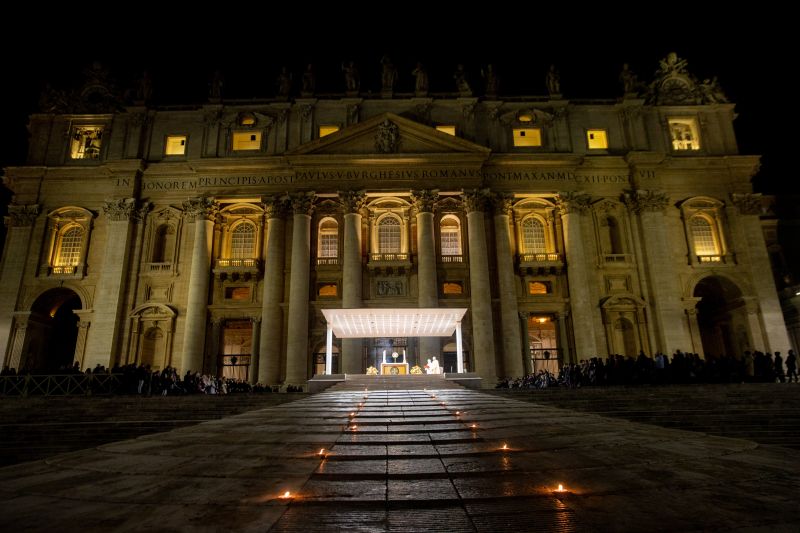
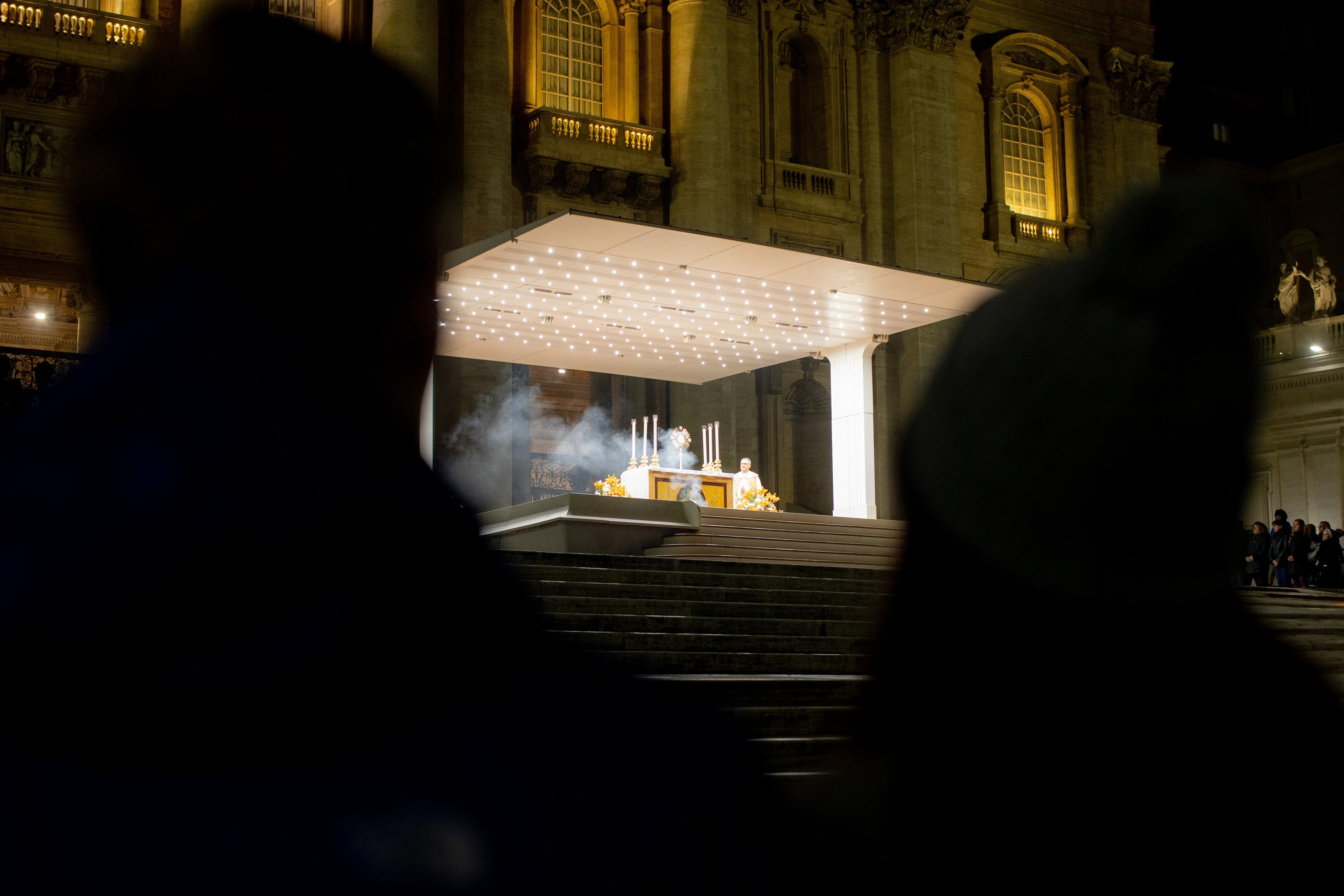
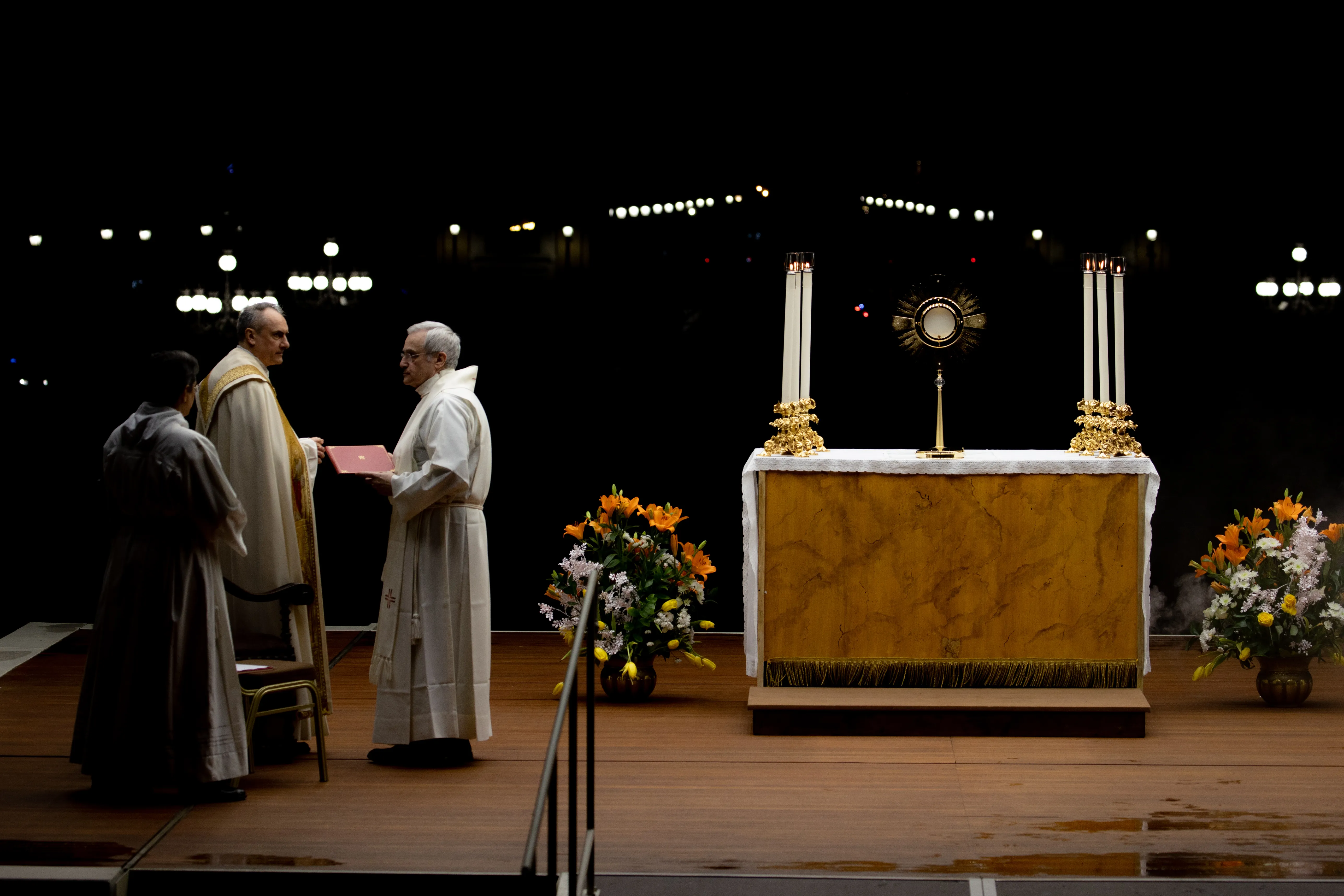
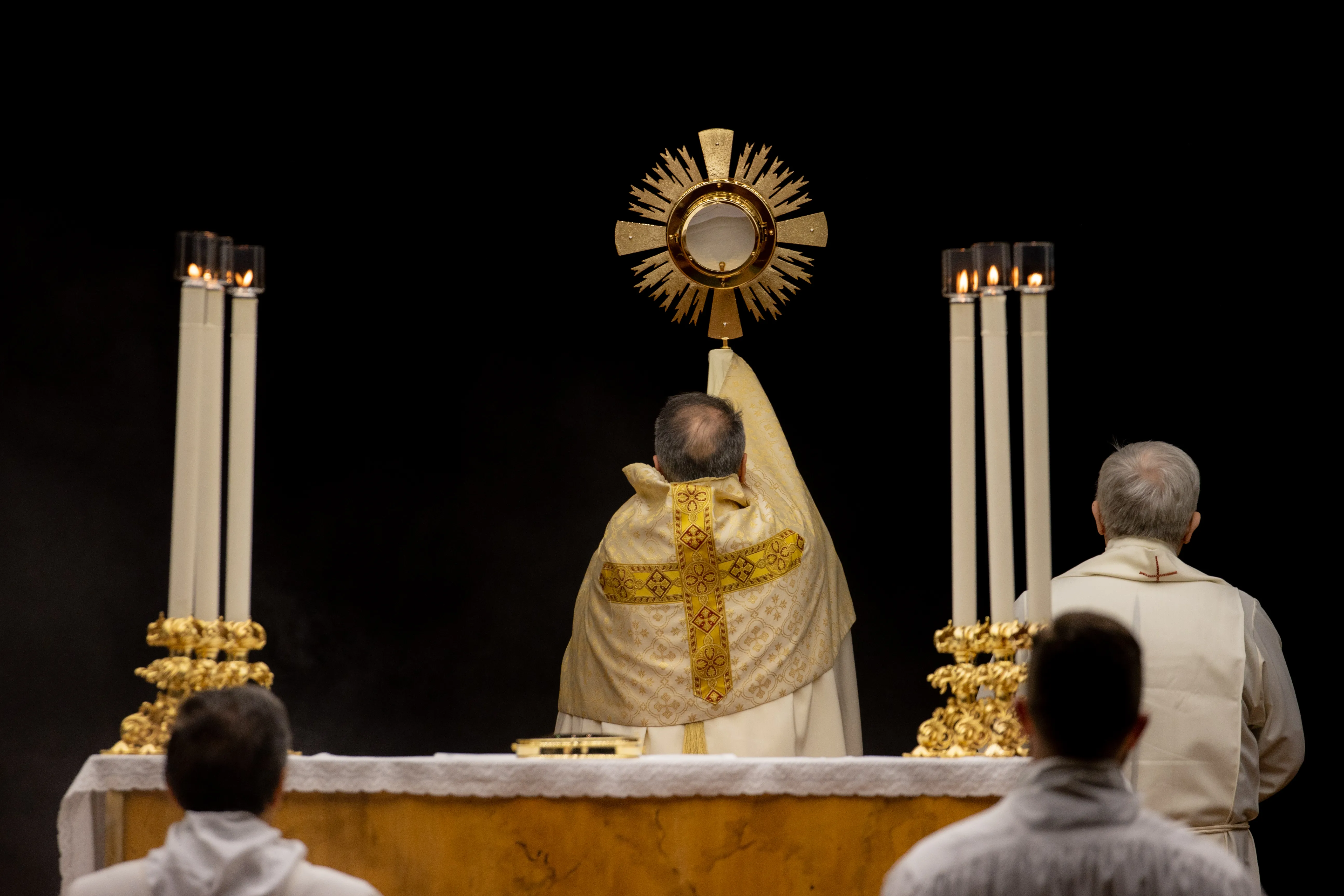
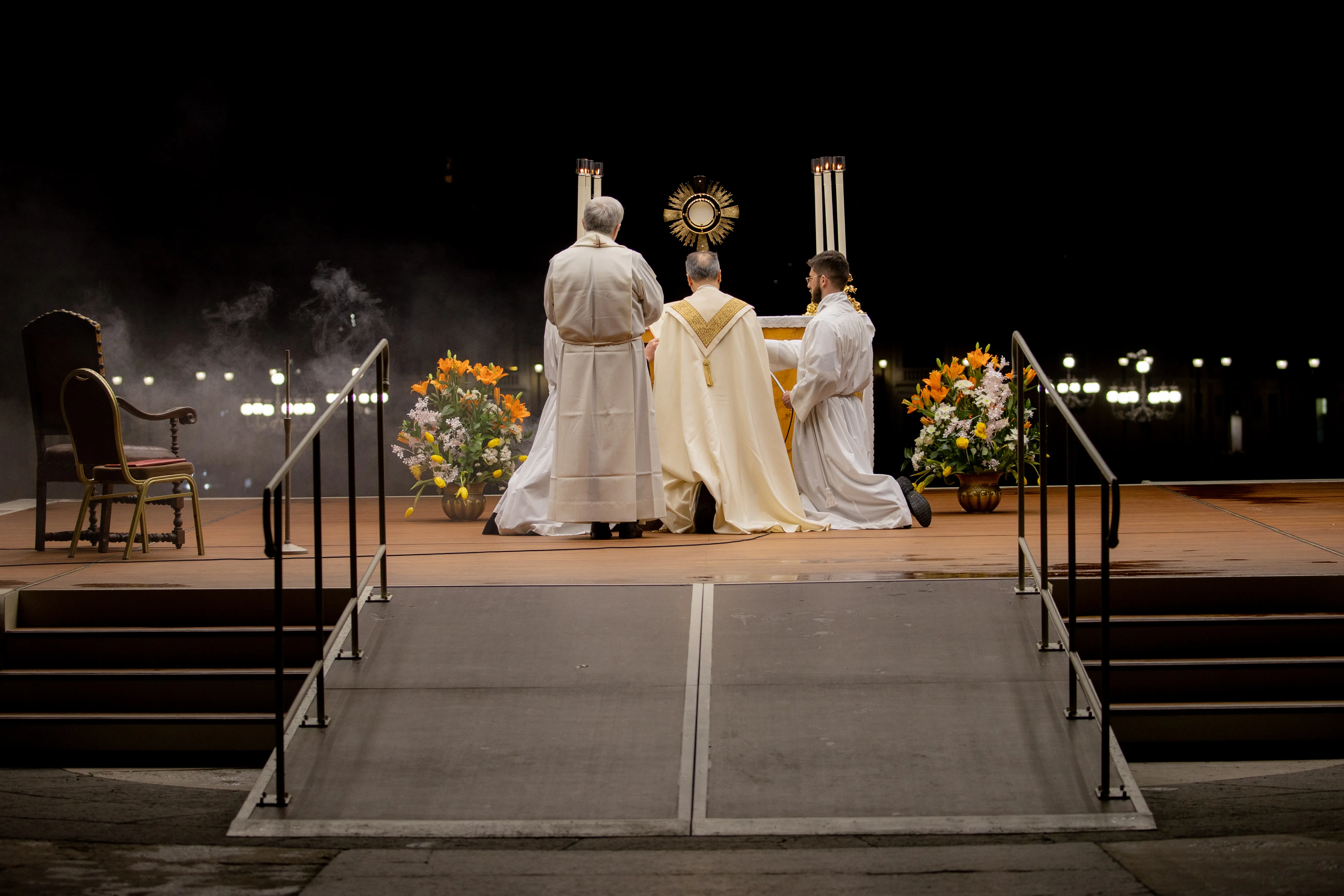
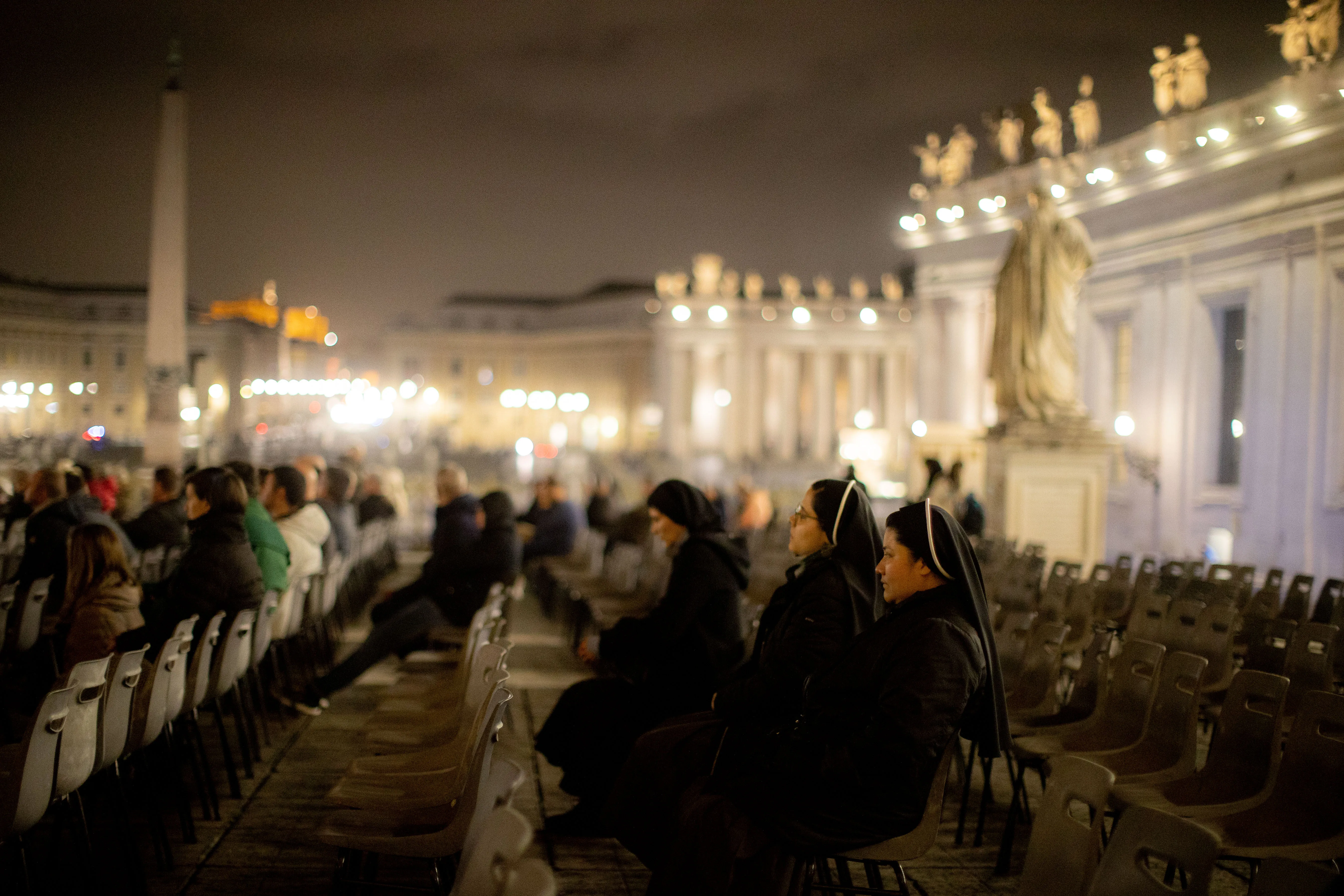
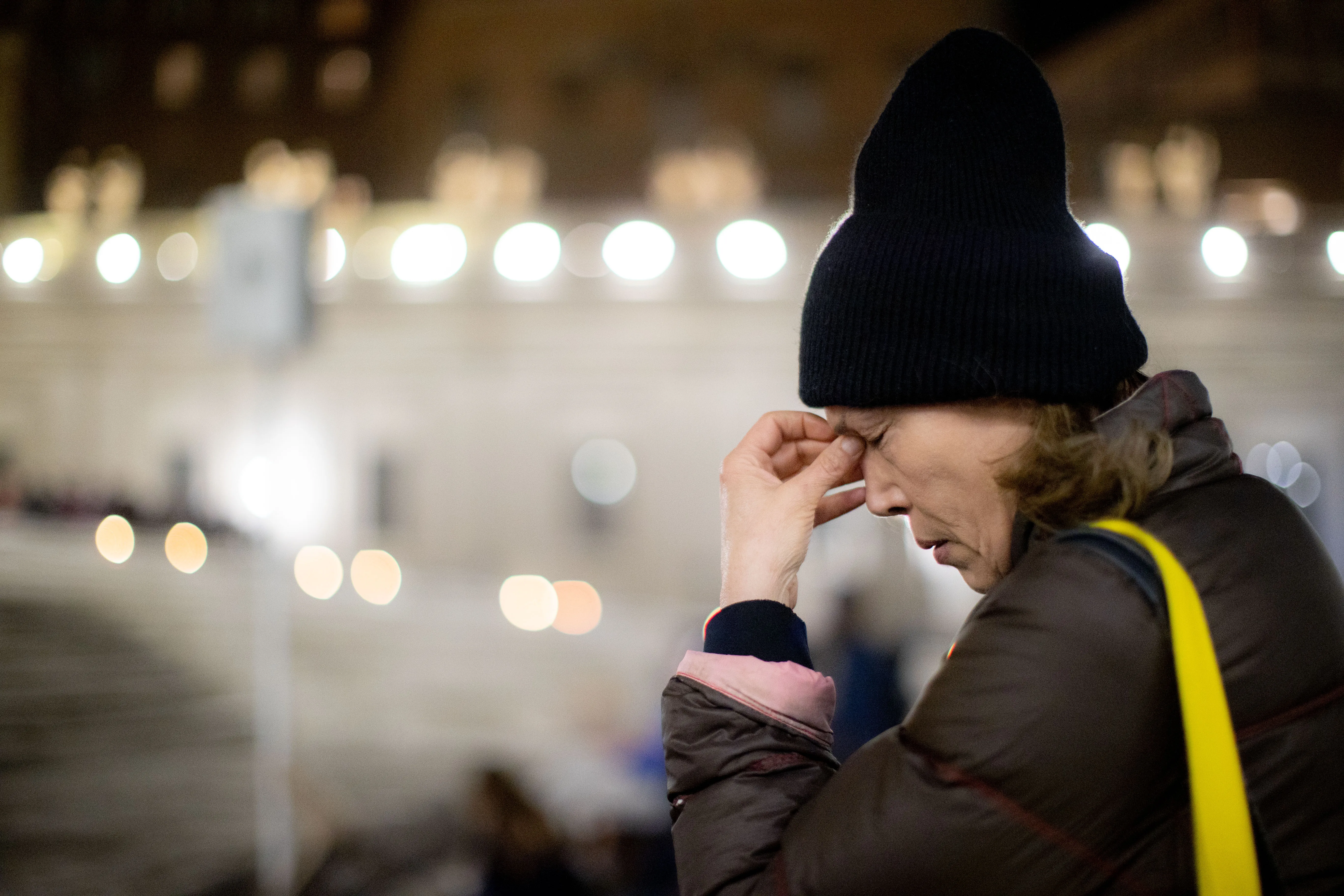
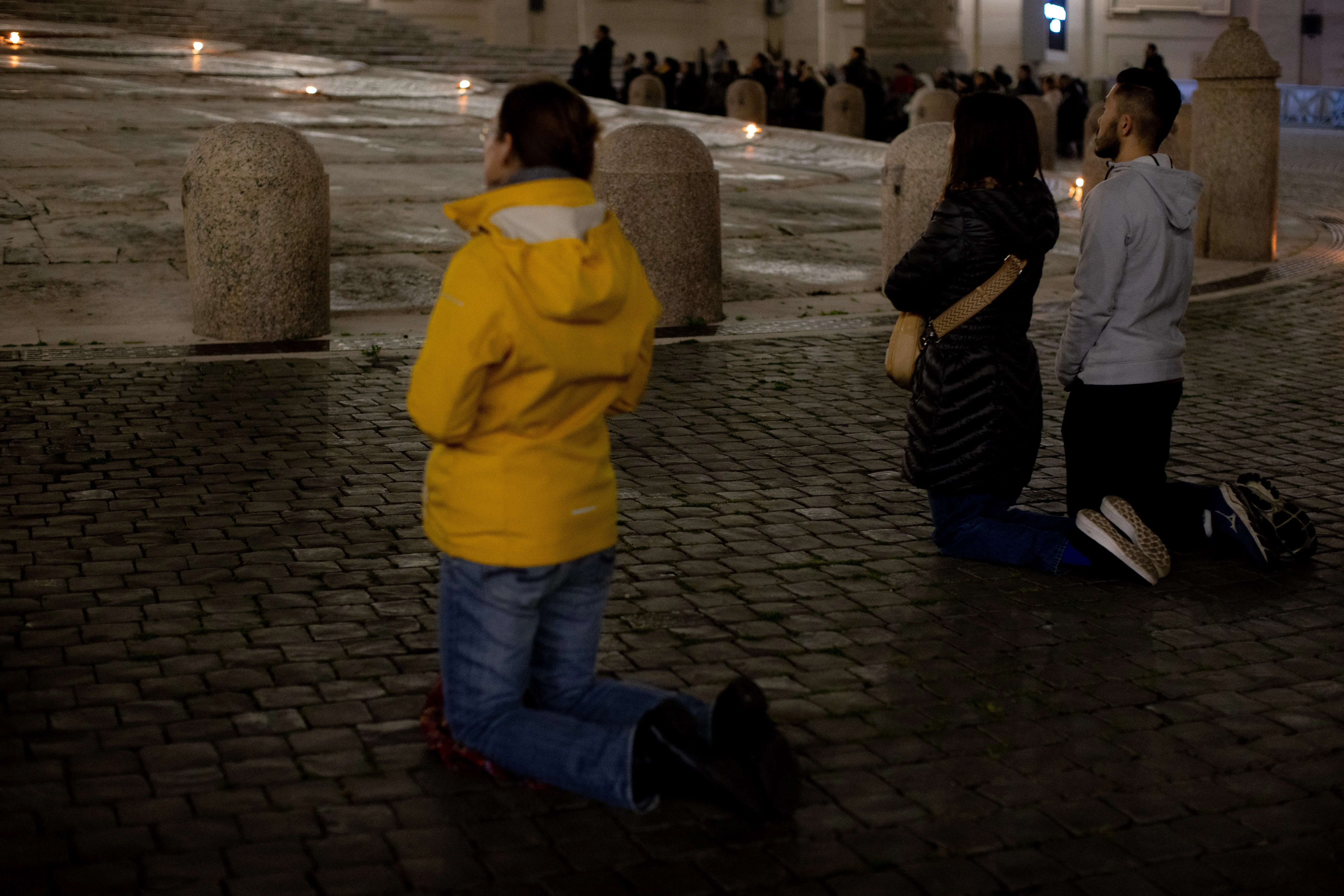
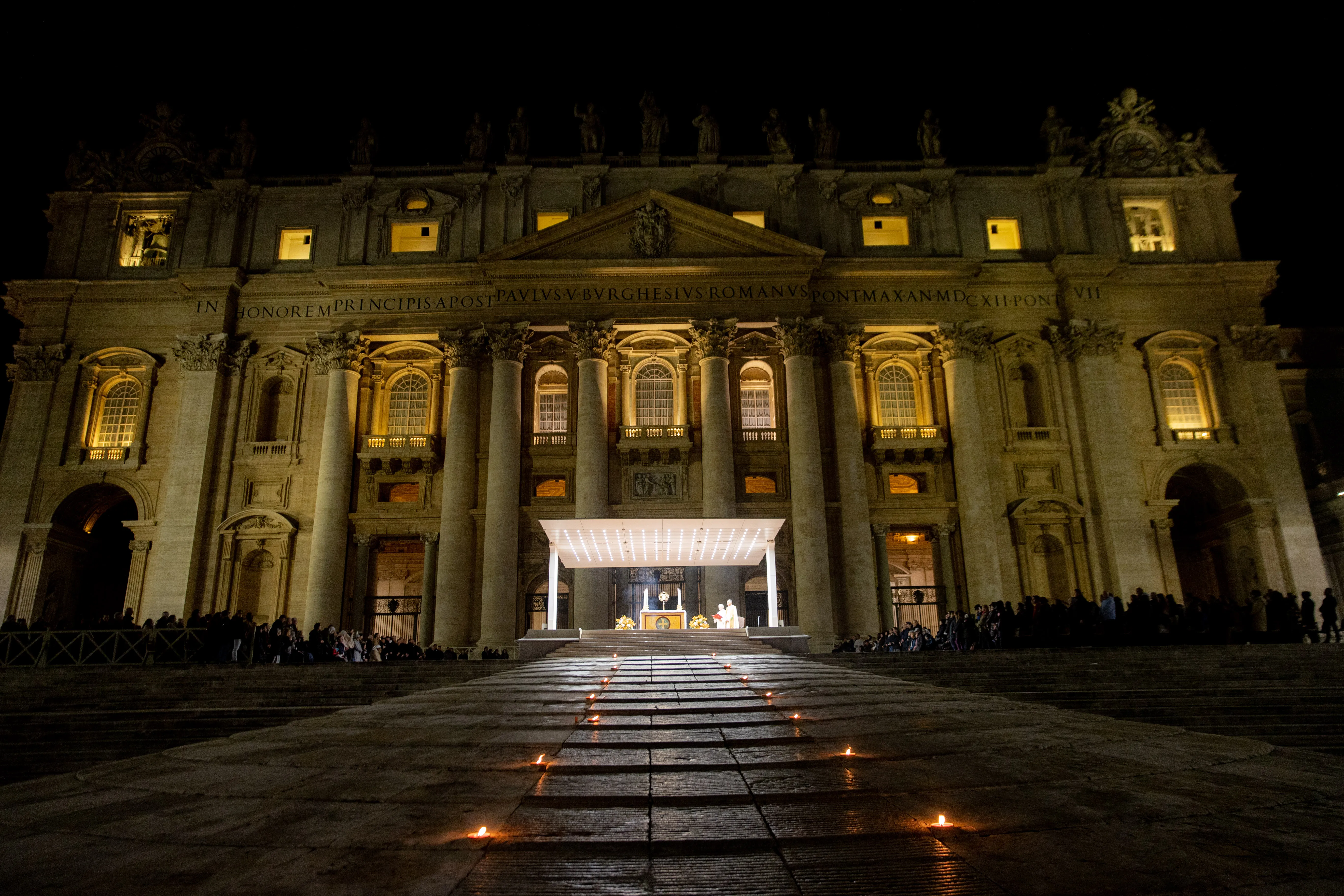
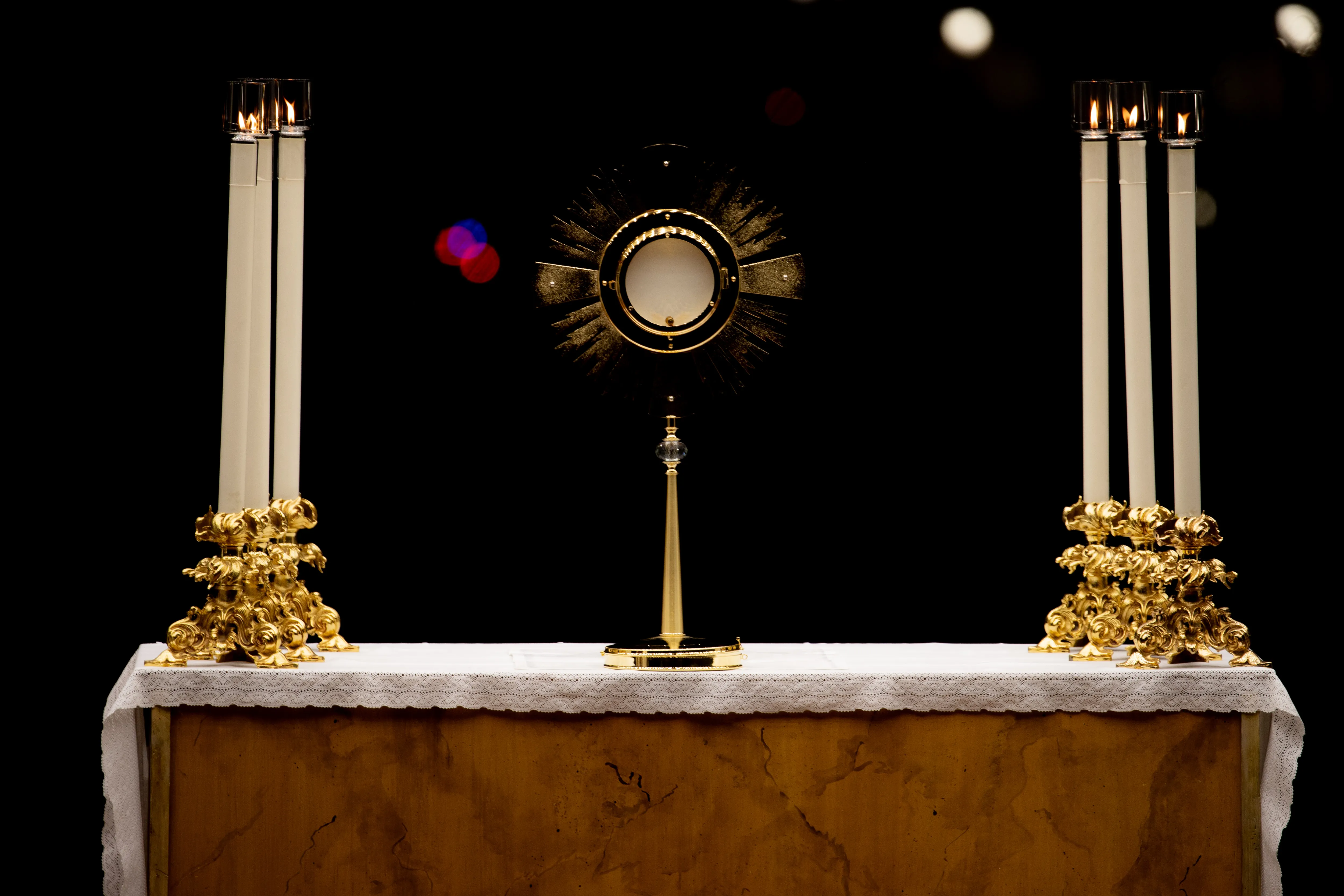
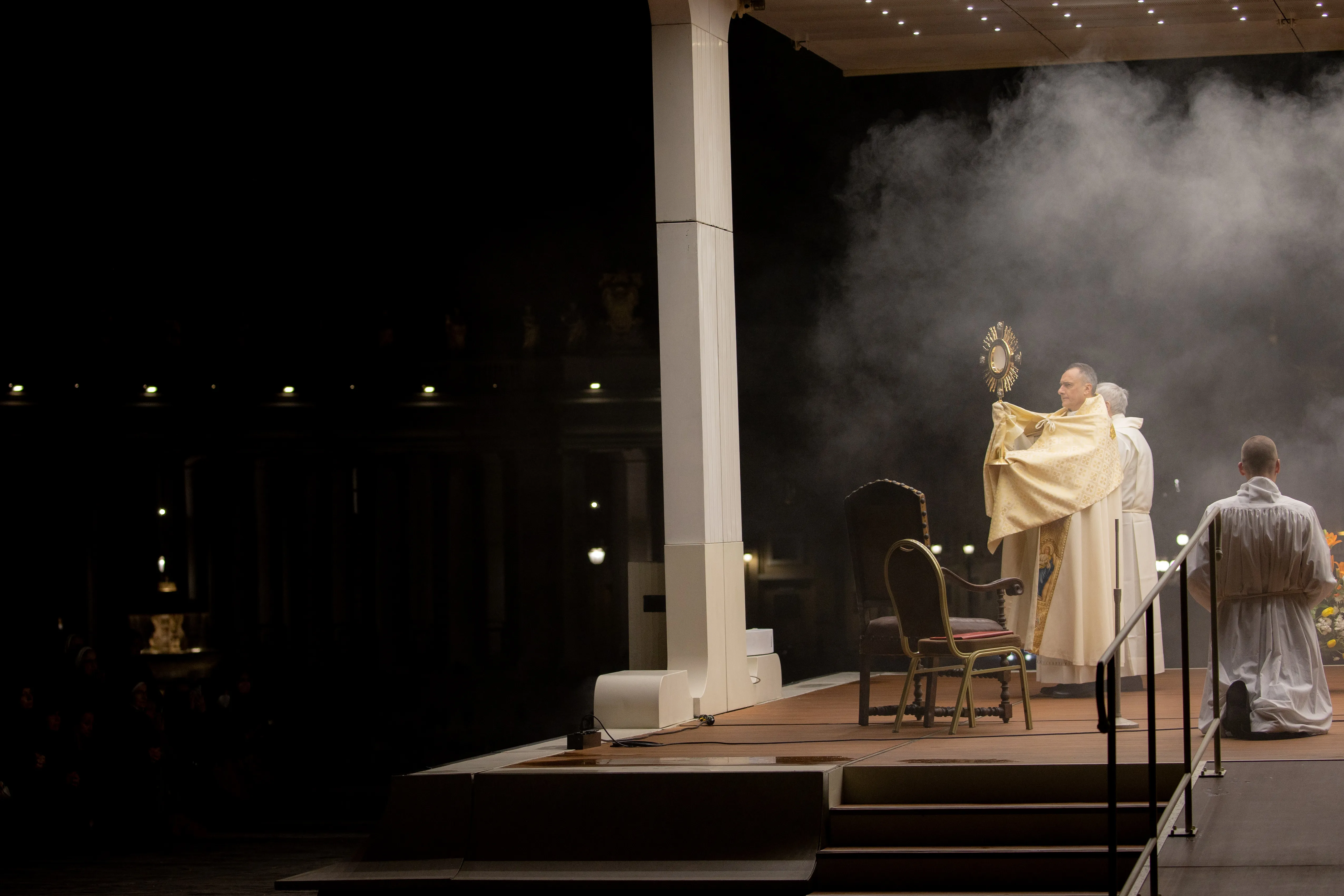
The pre-synodal declaration consists mainly of how the Church should change itself to accommodate young people, instead of youth preparing themselves to receive what they deserve. In other words, they want Holy Mother Church to become just another protestant body instead of the Body and Blood, soul and divinity of Our Lord. Rather than changing themselves to accept the teachings of the Church, they want to get whatever they want.
This is just another chance for Pope Francis to manipulate Church teaching. Of course the usual phrase will be used “Church teaching hasn’t changed, we have a just new understanding.” It is very distressing that scripture is not used as at least a stating point on why we believe what we believe. Catholicism has lost it’s place as the standard for moral teaching. The Church is supposed to change the world, not the world change the church. In stead of having to get through the eye of a needle to get to heaven we just need to pass through the arch in St. Louis. The 95 theses are now being nailed to the door of St. Peters. May God help us and may God do it soon.
Let’s pray that God will intervene soon and have mercy on all of us. We need His help.
The three men in the photo are post-Catholic pied pipers.
Divisive manipulators of a new cult of power and emptiness.
Why is anybody kowtowing to the opinions and catering to the whims of “youth?” Youth is a time in which one generally lacks experience and judgment and is more likely to be brainwashed by the culture around one, and since our current culture is pretty much a cesspit that is not a good thing.
Why are they claiming that 29-year-olds are “youth?”
What exactly do they mean by “different religious backgrounds?” Is this agenda being set with the contributions of Moslems, Hindus, Buddhists? Of Protestants? Why would the Church be interested in tailoring Her beliefs and practices to suit nonbelievers?
The description of what “youth” wants looks like a checklist of left-wing progressive political positions, not the goals of the Faith. Instead of “We want to learn how to love God and serve Him and be with Him in Heaven forever,” it’s more like “We care nothing about the hereafter, we just want power and license to do whatever we want. Also, save the whales! Look how virtuous we are!”
Leslie,
Why kowtow to the youth? This heartens back to the “60s generation” where no one over 30 was to be trusted and everything in the Great Western Intellectual Tradition was to be rejected. In other words, that generation would start over with themselves as the starting point.
It appears that the Pope is of this mindset. Unfortunately, this idea isn’t Catholic and doesn’t square either with Catholic Tradition or with the concept of the development of doctrine.
OMG…vocational discernment? He’s pitching vocational discernment to SJW’s? Just imagine how unbearable the Church will become when *they start becoming priests, nuns, and bishops.
Come quickly, Lord Jesus!
We are facing another phony Synod, like the two on the family that preceded it, that makes a mockery of Catholic belief and practice. Chris Ferrara has an article that goes into detail beyond this article that is well worth reading in conjunction with it: http://www.fatimaperspectives.com/fe/perspective1178.asp
A good prosecutor always knows the answer before he asks the defendant. Anyone with an ounce of experience with youth knows the vast majority know little of the faith and have adapted a secularized mindset. The Pontiff is prosecuting an agenda. Pope Francis The Great Reformer is not seeking to reform the Church by inculcating it in the Apostolic Tradition. He knows well they will say exactly what he wants, “The Church appears as too severe and associated with excessive moralism. We need a Church that is welcoming and merciful” (a Catholic youth). Matthew Schmitz senior editor of First Things hits it dead center, “We need once again to put theology before anthropology”. If the Church knows What it is Who it represents it knows Whose message it teaches. If the Paradigm Shift differs from that message but as claimed with continuity why does it appear to be searching for a message? As with Benedict’s manipulated letter of refusal duplicitous so is the Youth Synod. That message is already prepackaged.
All this reminds me of a scene from the Hungarian anti-communist satirical movie, “The Witness,” in which the protagonist, Comrade Pelikan, is a simple peasant who is being set up to be the crown witness against his old friend in a Stalinist-style show trial.
When he arrives to the courthouse, his secret police handler, Comrade Virag (which means “flower” in Hungarian) hastily hands him a bunch of papers and says, “Here’s your testimony that you need to read.” The peasant looks at it and with confusion and concern responds, “Excuse me Comrade Virag, but there’s a mistake — this is the verdict!”
Not too different from the way our “Synods” have been operating under our current Respected Supreme Leader.
Does anyone else find it amazing how Millennials and Boomers always seem to want the same things? The two most self-righteous and narcissistic generations are working together to reduce the Church to nothing more than Jesus flavored progressive social action group.
“YOUNG PEOPLE, THE FAITH AND VOCATIONAL DISCERNMENT” aka The Relativism Manifesto
Well, certainly, the church should be taking advice on doctrine and practice from the most poorly catechetized generation in history. (also the most arrogant, self absorbed and shallow) .. And with a pope at the head who doesn’t believe in hell… utopia is just around the corner!
Haven’t we had enough of this nonsense yet? Are there any Catholics in the vatican?
First, thanks for this article Mr. Ascik. Reading and reporting on this document must have been one of the more arduous acts of penance for Holy Week I’ve ever seen. But let’s be honest. Couldn’t we have just written this months ago when news of a “Youth Synod” first broke? Calls for changing in Church teaching (on sexual morality, of course), calls for a greater emphasis on SJW concerns such as the environment, immigration, etc., and all offered under the maddeningly monotonous appellation of ‘diversity’ from individuals whose shallow thought-processes give evidence of anything but.
I’m pretty sure we could go ahead and write the post-synodal exhortation right now. This would save us all the time and angst associated with a synod and just think of the reduction of carbon footprints if we don’t have to fly all the participants to Rome.
So basically it says exactly what the “progressives” and secularists wanted it to say and made sure it said. They want the Church to be less…less Catholic. And if we look elsewhere we see that such “reforms” have not led to renewal and greater numbers, but death. Francis, you are bringing us schism and ruin. Stop!
Let’s pray that something will happen to prevent this faith-wrecking synod from actually taking place.
Lord, have mercy on us.
The synod on the family that led to Amoris Laetitia was only the hors d’oeuvres. The main course of the Francis Papacy is coming up. Expect to see a full scale surrender/accommodation with 21st century secularism and acceptance of a life style that’s creating social road kill in immense quantity. In other words, everything wrong with the world will soon be sanctioned by the Church. The logic only makes sense in secular terms. The world is the way it is for a reason, and because today is different than yesterday, it must be desirable. What we will be junking is the Church of 2,000 years. More specifically we will be junking the Church of JPII (culture of death) and Benedict (tyranny of relativism), a Church that would be a beacon for the injured and a place to repair you life and soul. And to boot, Francis will do it badly. There will be no public opposition. Francis will try to peddle some form of Peronist economic justice. (Among other things, Francis has very limited gifts in the realm of analysis of the world as it exists. Argentina would not be the best place to get a good education on how the secular world should operate.) Wed yourself to the present and you will soon be a widower.
Pray that the bishops oppose this man and his supporters. He will be doing more damage to the Church than any Pope since the Reformation – maybe more.
How utterly predictable.
Until men (and not just clerics) take leadership in the patriarchate of Rome, the folly that posses as enlightened Christianity will continue to eat away at the Latin churches.
“…its overall tone is that youths themselves are both the source of and reference for the present and future” Let’s not “kid” ourselves. The heart of the progressive is ease and worldliness; it cares little about our kids unless it means to use them as a means to both (which is why the “kid” at Providence College got skewered for sacrifice and holiness). Empowerment of youth and women is ultimately progressive (worldly) empowerment. One more thing to never forget: the progressive is relentless – like a squirrel at a bird feeder – he will never rest in pillaging. Righteous worldliness drives him and when the kids no longer suit him, he will pillage something else and the kids will become his scapegoats.
It’s sad that Evangelicals, and Mormons seem to have a better grasp and defense of Christianity than the current Pope and his administration in the Vatican, and elsewhere in the Catholic Church. I guess Marxism and Liberation Theology, not to mention Moral Relativism, dominate the current Vatican, and will guide the Catholic Church into a new Catholic reality. Little wonder that many are leaving the Catholic Church for other Christian denominations, or just giving up on religion altogether…If “anything goes”, then why bother?
I wonder if more plaster will be falling…
May God have mercy on His suffering Church. Why would the Vatican ‘invite’ 300 kids from around the World to prepare a Sin-nod? It is a blatant set up job – so clumsy in its transparency as to be laughable – except the foibles of these misguided clerics are no laughing matter. We faithful in the pews will have to preserve and persevere. Shall we find any defenders of the faith among our bishops?
Welcome to the postmodern culture of amnesia…
Not so long ago, Cardinal Donald Wuerl got the big picture just about right, in Rome when he opened the Year of Faith in October 2012: “This current situation is rooted in the upheavals of the 1970s and 80s, decades in which there was manifest poor catechesis or miscatechesis at so many levels of education . . .It is as if a tsunami of secular influence has swept across the cultural landscape, taking with it such societal markers as marriage, family, the concept of the common good and objective right and wrong.”
With the Faith as a starting point, the Synod final report might (!!!)still recover enough to say something like the following:
That, yes, what seems an “unreachable standard” of Christianity is still possible with the elevating power of supernatural grace, and the interior life,
That, yes, the call for communities that “empower” with a “sense of identity and belonging” is basic, but also risks conflating power with the depth of gifted and fully human belonging; (“more original to us than our solitude;” Giussani, The Religious Sense),
That, yes, for the laity to be missionary means to be partly a “presence within the Church” but mostly a leaven in the world; (“Christianity was spread. . . by the spectacle of Christian morals…;” Chautard, The Soul of the Apostolate),
That alleged “taboos—pre-fabricated, severe and morally excessive” are actually truths about the very nature of the human person; (and are already given the requested “better explanation” in Veritatis Splendor and the Theology of the Body)”,
That, yes, the youth can be met “where they are,” but this does not mean that the Christ within gives us a pass for having it both ways; (even euthanasia is rationalized as a statutory exemption to civil laws against homicide),
That, yes, the Church is relevant to the world, but the ordained Church hierarchy does not claim license for mission-creep to pronounce concrete solutions for the “large social issues;” (leavening the world with both justice and truth is the vocation and expertise of a laity with well-formed consciences),
That rather than “false images of Jesus,” the center of the assembled Church—distinctly more than a sola Scriptura suburban “community”—is the concrete fact of Christ in history, fully God and fully Man, and now in the Eucharist (the Real Presence entirely “transparent” sacramentally).
The only thing new under the sun–the only real “paradigm shift”–is personal conversion.
This Youth Synod is a joke and should be cancelled, and replaced with a march for penance and reparation.